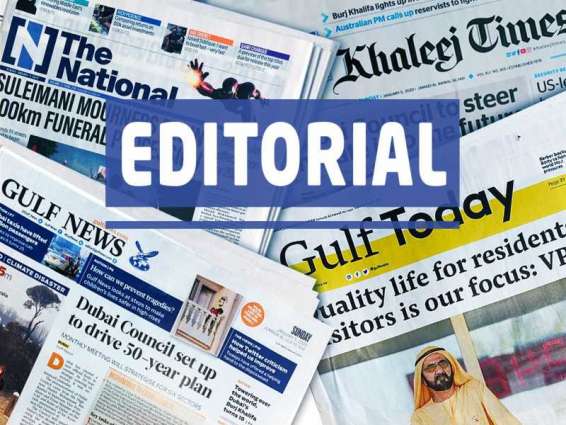ABU DHABI, (Pakistan Point News - 08th Apr, 2020) In the choice between health and wealth, the former always gets priority, a UAE daily said in an editorial on Wednesday.
"Rightly so," continued the Gulf Today, adding, "However, when a pandemic threatens the livelihood of some 1.25 billion workers worldwide and creates the worst global crisis since World War II, it creates a huge cause for worry."
It went on to note a fresh study by the International Labour Organisation, ILO, which warned that the global spread of the new coronavirus and the drastic measures taken to rein in the disease would, during the second quarter of 2020 alone, wipe out 6.7 percent of working hours globally.
"That is equivalent to 195 million full-time workers," the daily added.
"The Asia Pacific region would see the greatest loss in hours worked, with the equivalent of 125 million full-time jobs obliterated there over the next three months. More than four out of five people in the global workforce live in places hit by full or partial workplace closures.
"Huge losses are expected across different income groups but especially in upper-middle income countries ( seven percent, 100 million full-time workers). This far exceeds the effects of the 2008-9 financial crisis. The sectors most at risk include accommodation and food services, manufacturing, retail, and business and administrative activities," the English language daily continued.
It said, "The eventual increase in global unemployment during 2020 will depend substantially on future developments and policy measures. There is a high risk that the end-of-year figure will be significantly higher than the initial ILO projection, of 25 million."
The newspaper quoted Guy Ryder, ILO's Director-General, as saying, "Workers and businesses are facing catastrophe, in both developed and developing economies... We have to move fast, decisively, and together. The right, urgent, measures, could make the difference between survival and collapse."
"Adding to the concern, worldwide, two billion people work in the informal sector - mostly in emerging and developing economies - and are particularly at risk. Of the economic sectors most affected, the wholesale and retail trade segment represents the largest share of workers, who are typically low paid and unprotected. This group of 482 million workers includes, among others, checkout clerks, stockers, shopkeepers and workers in related jobs.
"Workers in this sector who are engaged in activities deemed essential, food distribution for example, may continue to work, but they face greater occupational health risks. Workers in non-essential businesses face widespread closures and sharp reductions in employment and hours. Launching of initiatives such as partial unemployment, technical unemployment and short working time measures that keep workers tied to their jobs can certainly help," the paper added.
"The pandemic has also landed airlines in deep waters. Global airlines fear that 25 million jobs across the world could be at risk from the coronavirus travel downturn and the industry’s representative body says airline finances are so fragile they could not afford to refund customers.
"Airlines are burning through their cash reserves as they try to stay afloat, as per the International Air Transport Association. Providing refunds for cancelled flights, as rules in many parts of the world such as EU261 in the European Union, require them to do, does not seem possible.
"About US$35 billion of tickets were due for refund at the end of the second quarter, and vouchers or a delayed refund was all airlines could offer.
"As ILO officials suggest, large-scale integrated, policy measures are needed, focusing on four pillars: supporting enterprises, employment and incomes; stimulating the economy and jobs; protecting workers in the workplace; and, using social dialogue between government, workers and employers to find solutions," the Sharjah-based daily concluded.




